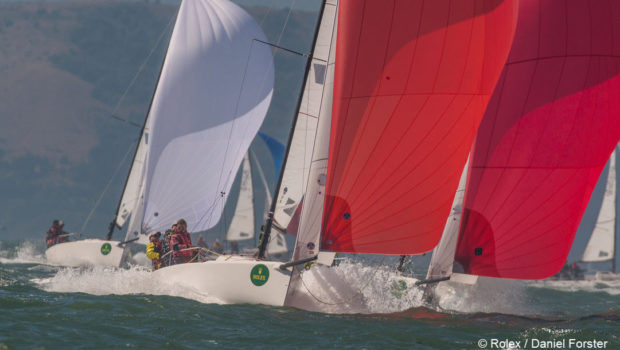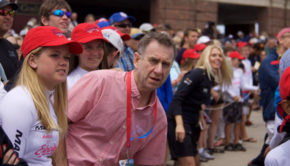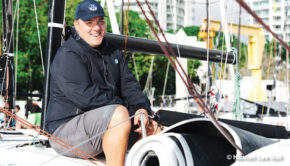Pros Among Us
Published on September 22nd, 2016
The debate over professional sailors in our amateur sport rages on as classes and events come to terms with competitive sailing’s changing landscape. Scuttlebutt editor Craig Leweck provides this report for Sailing World…
When I turned 21, I dropped out of college, moved to Ohio, and went to work for Greg Fisher at Shore Sails. What he got was an employee. What I got was an invaluable education, one that I’ve relied on ever since.
It was the mid-1980s, and Fisher was the model sailing-industry professional. He excelled on the racecourse but was even better onshore. He was highly personable and a tireless giver. He was a road warrior, driving throughout the winter giving seminars, and at regattas he helped his competitors, customers or not. Most were his customers anyway, because his sails were fast and he was a reputable guy.
As a career sailmaker for 12 years, I was also a pro sailor, and I emulated Fisher. It was one hell of a job. I sailed a lot, steered my own boats, traveled to all corners of the country, and met tremendous people. I knew then that if I and my colleagues were to make a decent living, the sport and its participants had to succeed first and foremost. Our existence was a privilege. We were in a position to help people enjoy their regattas, on the water, on land, and even late into the night, if required.
The changing impact of industry pros on competitive sailing, however, hasn’t been entirely positive. Yes, there are outstanding modern-day pros like Fisher, who contribute in positive ways, but there are plenty of bad apples too. These are the individuals who either can’t — or won’t — look beyond their reputation, their personal gain or their day rate.
The rise of competitiveness put a price on expertise. Eventually the top sailors found that products offered less profit than their skills. Inevitably, sailors began charging owners to crew. Good sails, a fast boat and practice still count, but the skill of a crew and coaching have escalated in importance dramatically. For many raceboat owners today, to play and be a player, you simply have to pay.
The sport has evolved with this trend. Raceboats and equipment now require more specialized skills to use and own. “New and improved” means more technical, so more training is now required. One-design classes have created Corinthian divisions to satisfy amateur teams, but they rely on the International Sailor Classification Code, which wrongly defines professionals. When riggers and boat brokers are lumped into the same category with Hall-of-Famers and Olympians, the system is flawed. Because the code allows sailors under the age of 24 to qualify as amateurs, yet allows them to also be paid, we can have Corinthian winners paying crew or being supported by regatta coaches. Yikes.
“So what?” some say. “Nothing today is easier or cheaper than it used to be; every sport has been impacted by heightened effort.” They’re right. Plus, when an owner pays for “expertise,” he or she is also learning. If the relationship is good, the owner and the team will improve as a result. There is a danger, however. When pros are selling you their expertise, there’s no motivation for them to help others. When this happens, the culture of knowledge-sharing becomes splintered. Industry pros will try to help the stragglers, but now even the industry status of “expert” is threatened. The primary job of professional crews and coaches is to accumulate expertise. They’re on the water a lot more than many other industry pros.
Full report… click here.









 We’ll keep your information safe.
We’ll keep your information safe.